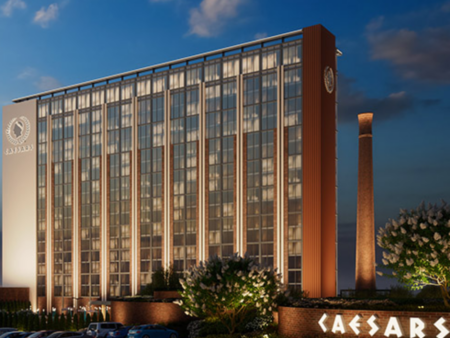As Kansas and Missouri approach their legislative sessions, discussions intensify around proposed laws to ban smoking in state-owned casinos. Advocates for smoke-free gambling environments emphasize the health and economic benefits of such measures, while opponents raise concerns about potential impacts on business and personal freedoms.
Casino Employees Advocate for a Healthier Workplace
A leading force behind the push for smoke-free casinos in both states is Casino Employees Against Smoking Effects (CEASE). The organization, founded by casino workers, has gained significant traction. Joe Hafley, the Kansas and Missouri CEASE chapter leader and a security guard at Hollywood Casino, has been vocal about the risks of second-hand smoke. Hafley highlights the dangers not only for casino employees but also for their families, underscoring how workers often carry harmful toxins home.
Hafley’s advocacy is bolstered by data indicating that 85% of residents in Kansas and Missouri do not smoke, reflecting strong public support for smoke-free environments. CEASE is urging lawmakers to prioritize public health by implementing smoking bans in state-owned gambling establishments.
Scope of the Proposed Smoking Ban
The proposed legislation aims to eliminate smoking in all state-owned casinos across Kansas, which include:
- Kansas Star Casino
- Boot Hill Casino
- Hollywood Casino
- Kansas Crossing Casino
However, tribal-owned casinos, such as 7th Street Casino in Kansas City, Kansas, would be exempt due to their sovereign status. This distinction raises questions about the consistency of health protections for casino employees and patrons across different establishments.
Diverging Opinions: Health vs. Revenue
The debate surrounding the casino smoking ban has sparked mixed reactions. Some casino-goers oppose the restrictions, arguing that adults should have the freedom to smoke in entertainment spaces specifically designed for adults. They fear that banning smoking might deter a significant segment of the clientele, potentially impacting casino revenues.
On the other hand, patrons like Mattie Coleman, a frequent visitor to 7th Street Casino, support the initiative. Coleman believes the ban would promote healthier environments by reducing exposure to second-hand smoke, benefiting both employees and non-smoking guests.
Casino Operators Weigh In
Casino operators have expressed concerns about balancing customer preferences with health regulations. Jeff Morris, Penn Entertainment’s Vice President of Public Affairs, emphasizes the significant investments made in advanced air filtration systems and designated smoking areas. These measures aim to improve air quality without imposing a full smoking ban, accommodating both smokers and non-smokers.
Morris argues that in a highly competitive gambling industry, decisions regarding smoking policies should be market-driven rather than legislatively mandated. Operators worry that stricter regulations might drive customers to casinos in neighboring states or tribal casinos where smoking is still allowed.
Legislative Timeline and Upcoming Advocacy Events
The push for smoke-free casinos will take center stage as the legislative sessions in both states draw near. The Missouri legislature reconvenes on January 8, 2025, while Kansas lawmakers will return on January 13, 2025. These sessions are crucial opportunities for advocates and opponents to present their cases.
Advocacy efforts are ramping up, with key events scheduled to increase public awareness and legislative support. CEASE and other public health organizations have planned the following rallies:
- January 21, 2025: Kansas Statehouse
- February 3, 2025: Missouri Statehouse
These events aim to demonstrate widespread support for the smoking ban and to persuade lawmakers to act swiftly.
Public Health and Economic Considerations
The campaign for smoke-free casinos aligns with broader public health initiatives aimed at reducing exposure to second-hand smoke. According to the Centers for Disease Control and Prevention (CDC), exposure to second-hand smoke increases the risk of serious health issues, including heart disease, lung cancer, and respiratory illnesses. Implementing smoking bans in casinos could significantly reduce these risks for both employees and patrons.
From an economic perspective, smoke-free policies could enhance the appeal of casinos to a broader audience, particularly non-smokers and families. Studies in other states have shown that the introduction of smoking bans in casinos often leads to initial resistance but eventually results in stable or increased revenues as the customer base expands.
The Path Forward: Balancing Health and Business Interests
As Kansas and Missouri lawmakers prepare to debate the proposed smoking bans, the challenge lies in finding a solution that balances public health imperatives with economic realities. While the benefits of smoke-free environments are well-documented, the concerns of casino operators regarding potential revenue losses cannot be ignored.
The outcome of this legislative effort could set a precedent for other states grappling with similar issues. Whether through voluntary adoption of smoke-free policies or legislative mandates, the goal remains the same: creating healthier environments for casino employees and patrons alike.
FAQs About Kansas and Missouri Advance Towards Casino Smoking Ban
1. What is the proposed smoking ban in Kansas and Missouri casinos?
The proposed legislation seeks to ban smoking in all state-owned casinos in Kansas and Missouri. This would create a smoke-free environment to protect casino employees and patrons from the harmful effects of second-hand smoke.
2. Which casinos would the smoking ban affect?
In Kansas, the ban would apply to the following state-owned casinos:
- Kansas Star Casino
- Boot Hill Casino
- Hollywood Casino
- Kansas Crossing Casino
Tribal-owned casinos, such as 7th Street Casino in Kansas City, Kansas, would be exempt as they operate under sovereign governance.
3. Who is advocating for the smoking ban?
The campaign is being led by Casino Employees Against Smoking Effects (CEASE), an organization that advocates for smoke-free workplaces in casinos. Joe Hafley, the Kansas and Missouri chapter leader, is a prominent voice in the movement.
4. Why is the smoking ban being proposed?
The ban is proposed to protect the health of casino employees and guests. Exposure to second-hand smoke is known to cause serious health issues, including heart disease, lung cancer, and respiratory illnesses.
5. What are the main arguments against the smoking ban?
Opponents argue that banning smoking could deter a significant segment of casino patrons, potentially leading to revenue losses. They also believe that customer preferences, rather than legislation, should dictate smoking policies.
6. How are casino operators addressing the issue?
Casino operators, such as Penn Entertainment, have invested in advanced air filtration systems and designated smoking areas to improve air quality. They advocate for a market-driven approach rather than a legislated ban.
7. When will the legislative sessions take place?
The Missouri legislature will reconvene on January 8, 2025, while Kansas lawmakers will return on January 13, 2025. These sessions will be critical for the discussion and potential passage of the smoking ban.
8. Are there any upcoming advocacy events for the smoking ban?
Yes, CEASE and other public health organizations have scheduled the following events to rally support for the ban:
- January 21, 2025: Kansas Statehouse
- February 3, 2025: Missouri Statehouse
9. What are the potential health benefits of a smoking ban in casinos?
A smoking ban would significantly reduce exposure to second-hand smoke, lowering the risk of serious health conditions for both casino employees and patrons.
10. How could the smoking ban impact casino revenues?
While some fear that a smoking ban could initially lead to revenue losses, studies from other states suggest that revenues often stabilize or even increase over time as casinos attract a broader, health-conscious customer base.


















